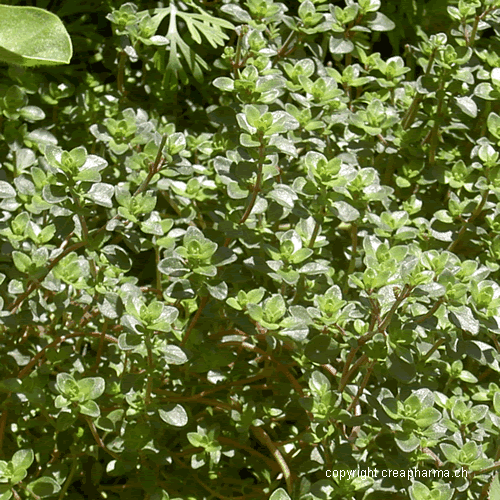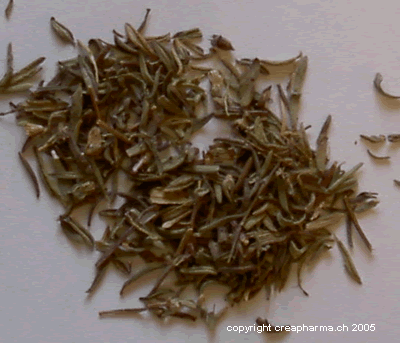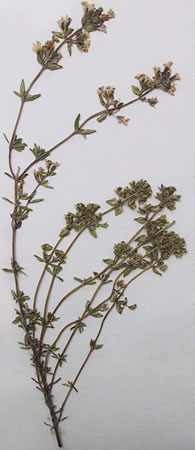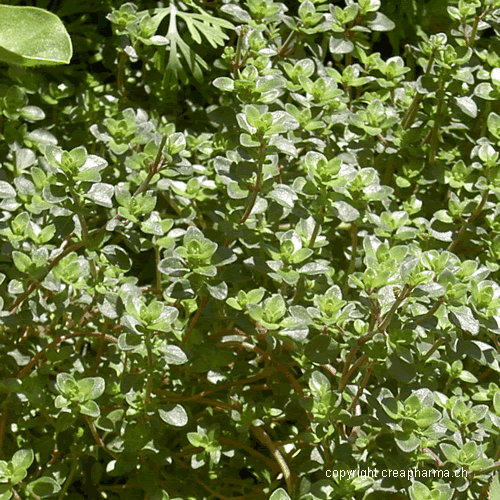Thyme
Herbal plant, rich in flavonoids and volatile oils, which has a preventive and curative effect in case of cough. Often comes in tea, syrup or tincture.
English name: Thyme, Common Thyme
Binomial name: Thymus vulgaris L.
French name: thym
German name:Thymian
Italian name: timo
Portuguese name: tomilho
Spanish Name: tomillo
Lamiaceae
Flavonoids, volatile oils or essential oils (thymol, carvacrol)
Expectorant, antispasmodic, antibacterial, antifungal, antiviral, antioxidant
– Respiratory conditions : cough, bronchitis, colds, asthma
– Digestive upsets
– Allergy (high dosage)
– Allergy
– Thyme tea
– Thyme syrup
– Inhalation of thyme
– Capsules
– Tincture
Thyme grows in the whole world, preferably in warm countries.
Thyme is harvested in late summer (to make medicinal preparations for example, see above), but also at other times of the year (April-May for example thyme can be very good quality).
Thyme can be planted in Europe and North America in early spring in your garden, terrace or balcony.
– Thyme, with peculiar smell, is a strong disinfectant.
In some countries of North Africa, essential oil of thyme is used in hospital as disinfection substance, often for reasons of economy.
– Thymol, that is found within essential oil of thyme, is often used in toothpastes.
– In its indication to treat coughs, this preparation has been used for a long time and is very effective. To be taken preferably in herbal tea or thyme infusion, it is recommended to add honey for cough.




